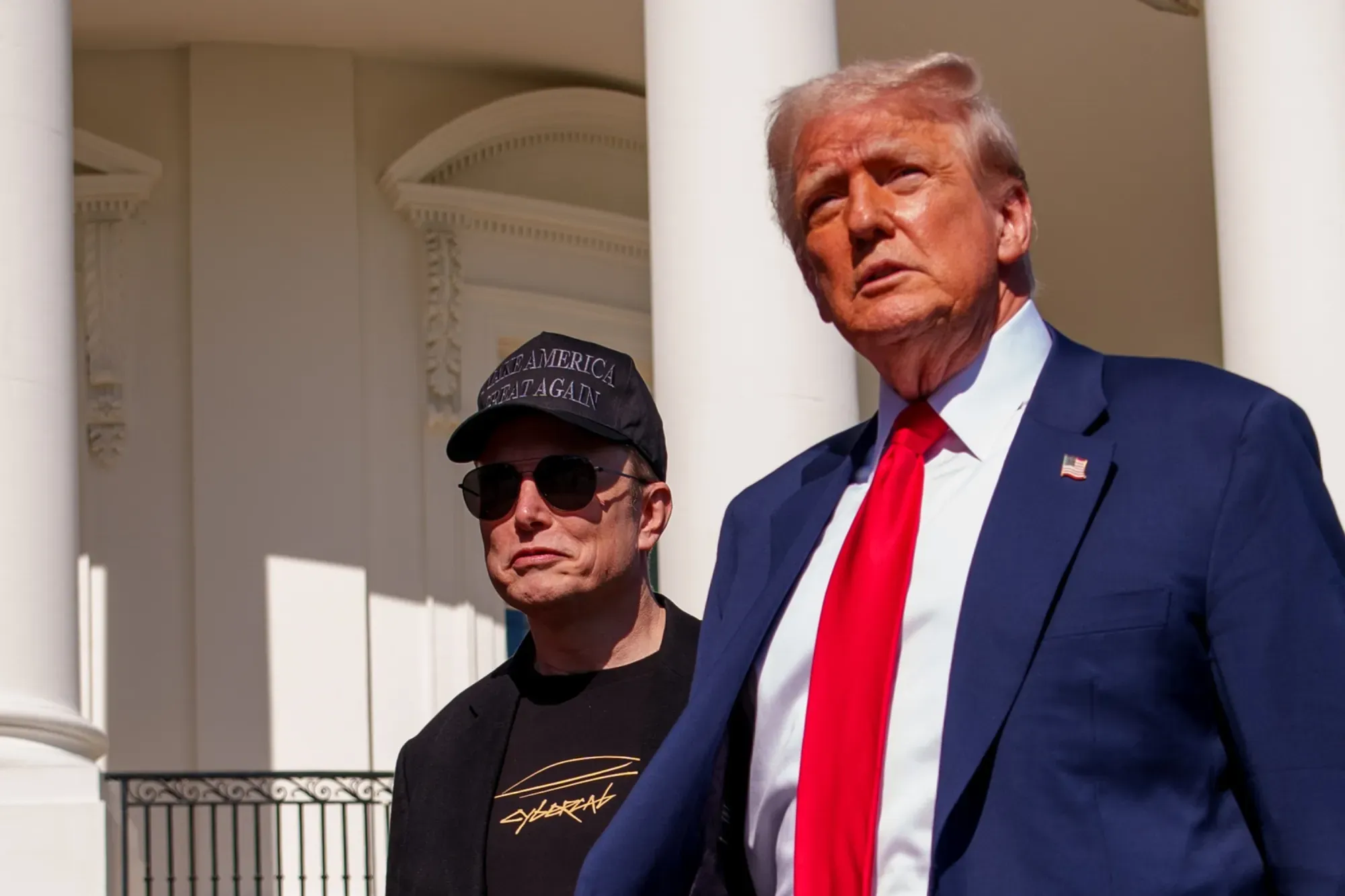Elon Musk and Donald Trump Feud Shakes Bitcoin Market Amid Political Chaos

The escalating fallout between Elon Musk and Donald Trump has cast a spotlight on Bitcoin and crypto, as political tensions and macroeconomic pressures contribute to a turbulent environment for digital assets.
On June 4, Musk publicly criticized Trump’s proposed tax cut and spending bill, warning that it could lead to “debt slavery” with the U.S. annual deficit potentially exceeding $2 trillion and 25% of revenue consumed by interest payments. Musk’s implication that Bitcoin could serve as a U.S. reserve currency, which was prompted by Coinbase’s Brian Armstrong, has sparked debate about the role of cryptocurrencies amid this uncertainty, while Musk’s claim of political influence adds fuel to the fire.
In a recent X post, Musk stated, “Without me, Trump would have lost the election, Dems would control the House and the Republicans would be 51-49 in the Senate,” highlighting his belief in his pivotal role in Trump’s 2024 victory. Trump, however, fired back on Truth Social with his own sharp rebuke, saying, “Elon was ‘wearing thin,’ I asked him to leave, I took away his EV Mandate that forced everyone to buy Electric Cars that nobody else wanted (that he knew for months I was going to do!), and he just went CRAZY!” This exchange shows the deepening rift between the two influential figures and its potential impact on the crypto space, which is already grappling with significant market declines today.
This high-profile conflict comes at a critical moment for the Republican Party, which has recently adopted a pro-crypto stance under Trump’s leadership. Trump’s January 2025 executive order aimed to support the U.S. crypto industry, including exploring a national strategic Bitcoin reserve. However, Musk’s departure from a government advisory role and his criticism of Trump’s fiscal policy signal a fracture within the party. As a key supporter of Trump’s 2024 campaign, Musk brought significant influence through his X platform and appeal to tech savvy, crypto friendly voters. His exit could weaken Republican unity, potentially stalling crypto friendly initiatives at a time when Democrats are poised to exploit this disarray and push for stricter regulations, a move that could hinder Bitcoin’s growth.
Stay In The Loop and Never Miss Important Bitcoin News
Sign up and be the first to know when we publishGlobal Economic Pressures and Crypto Market Declines
Compounding the political drama, Trump’s 2025 tariff policies are reshaping global trade dynamics, with significant implications for Bitcoin and other cryptocurrencies. The Centre for Economic Policy Research predicts that these tariffs, raising effective rates on U.S. imports to 30%, will trigger sharp trade contractions and substantial welfare losses, particularly for the United States.
This disruption risks a global economic slowdown, fostering a risk-off environment where investors may favor traditional safe havens like gold, which has outperformed Bitcoin during Trump’s second term. The crypto market is feeling the pressure, with Bitcoin starting the day at $104,861 and dropping 3% to $101,659. Ethereum, which began the day at $2,617, is down 7% at $2,432, while Solana, starting at $155, has also declined 7% to $144. Most other cryptocurrencies are experiencing similar losses, with declines ranging from 4% to 8% on the day, reflecting broader market uncertainty.
A weakened U.S. dollar, exacerbated by the looming debt crisis Musk warns of, could eventually drive interest in Bitcoin as an alternative store of value. However, global perceptions of U.S. instability might also accelerate competing trends, such as the adoption of stablecoins or central bank digital currencies like China’s digital yuan, particularly in regions hit hard by U.S. tariffs.
For now, the immediate challenges of political infighting, economic uncertainty, and a bearish crypto market may continue to weigh on Bitcoin and its peers, but the long-term potential for cryptocurrencies to serve as a hedge against fiat devaluation remains a compelling narrative for investors navigating this turbulent landscape.

